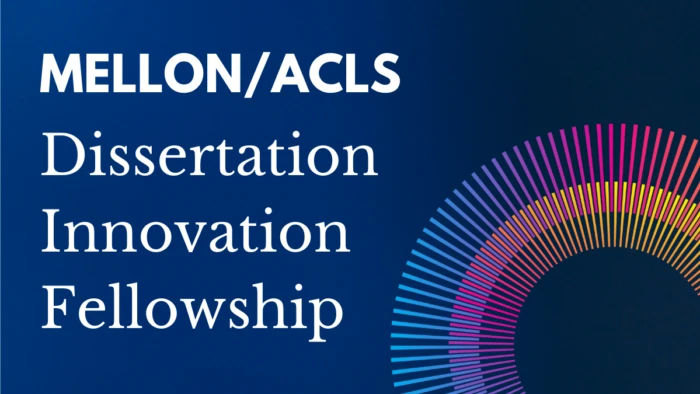Deadline: October 29, 2025
Are you a doctoral student in the humanities or interpretive social sciences with an innovative research idea? The Mellon/ACLS Dissertation Innovation Fellowship 2025–26 is now open for applications! Designed to support bold, experimental, and equity-oriented dissertation projects, this prestigious fellowship offers generous funding, mentorship opportunities, and the freedom to pursue unconventional scholarly approaches.
Read on for everything you need to know about the Mellon/ACLS Dissertation Innovation Fellowship 2025–26, including eligibility criteria, funding breakdown, application deadlines, and tips for success.
Fellowship Overview
The Mellon/ACLS Dissertation Innovation Fellowship 2025–26 supports early-stage doctoral students in the humanities and interpretive social sciences who are committed to transforming traditional modes of academic research and knowledge production.
Fellows receive financial support and mentoring to develop dissertation projects that incorporate public engagement, new formats, interdisciplinary collaborations, or creative methodologies that advance equity and inclusion in scholarship.
🗓 Application Deadline
October 29, 2025 at 9:00 PM Eastern Time (ET)
Late applications will not be accepted.
Funding and Fellowship Benefits
Selected fellows will receive a generous funding package that includes:
- $42,000 base stipend for the fellowship term (9–12 months)
- Up to $3,000 for research-related travel, training, or project needs
- Up to $5,000 for professional development opportunities
- $2,000 additional stipend to support an external mentor
- Total possible support: up to $52,000
This support allows fellows to pursue rigorous, innovative work without the constraints of traditional academic timelines.
Fellowship Focus Areas
This fellowship seeks proposals that:
- Employ innovative methods or nontraditional dissertation formats
- Engage communities or partners outside of academia
- Advance equity, inclusion, and justice within scholarly practices
- Reimagine the role and structure of the dissertation
- Demonstrate interdisciplinary creativity and collaboration
Eligibility Requirements
To be eligible for the Mellon/ACLS Dissertation Innovation Fellowship 2025–26, applicants must:
- Be enrolled in a PhD programme in the humanities or interpretive social sciences at a U.S. university
- Have completed at least two years of doctoral coursework
- Not have advanced to candidacy (ABD) before January 1, 2025
- Have at least two years remaining in the PhD programme at the start of the fellowship term (July–September 2026)
- Apply no more than once during their PhD studies
Ineligible fields include clinical or practice-based programmes such as law, education, public policy, business, social work, clinical psychology, and the natural or physical sciences.
Evaluation Criteria
Applications are reviewed by scholars across disciplines based on the following:
- Originality and intellectual merit of the proposed research
- The project’s potential to challenge or expand scholarly norms
- The candidate’s commitment to diversity, equity, and inclusive knowledge production
- Thoughtful integration of community engagement, interdisciplinarity, or experimental methodologies
In 2025, 45 fellows were selected from nearly 900 applicants through a multi-stage peer review process.
Fellowship Timeline
| Key Event | Date/Period |
|---|---|
| Application Deadline | October 29, 2025 (9:00 PM ET) |
| Notification of Results | April 2026 (anticipated) |
| Fellowship Term Start Window | July 1 – September 1, 2026 |
| Fellowship Duration | 9 to 12 months |
How to Apply
Applicants must submit a complete application via the official ACLS online system. Required materials include:
- A project proposal highlighting innovation and impact
- A timeline and explanation of how the project fits within broader PhD progress
- Letters of support, including from the external mentor (if selected)
- A statement of purpose and career goals
Tips for a Strong Application
- Emphasise how your project challenges disciplinary conventions or traditional dissertation structures
- Articulate your commitment to inclusive and community-engaged scholarship
- Be specific about how the fellowship will allow you to explore new formats, partnerships, or research questions
- Choose an external mentor who offers expertise beyond your institution’s boundaries
- Use clear, compelling, jargon-free language that appeals across disciplines
Important Links
If you need help drafting, refining, or reviewing your proposal, contact grantsdatabase.org for expert support tailored to fellowship applications in the humanities and social sciences.
